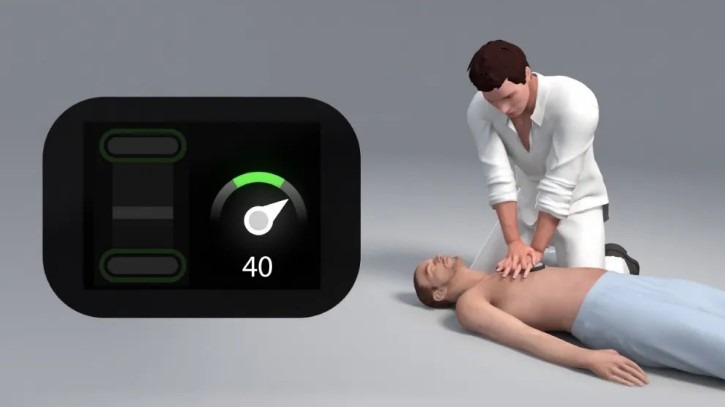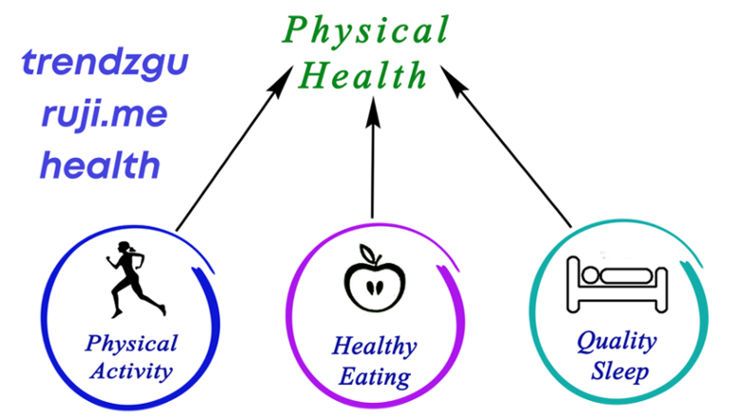What to Do When You Can’t Sleep? Explanations and Tips

If you keep wondering, “Why can’t I sleep even though I’m tired?” then you may need to consider many factors related to your health and lifestyle
Here’s Why You Can’t Sleep Through the Night and What You Can Do About It
If you keep tossing and turning all night long and wake up feeling even more tired than before you went to bed, it might feel very frustrating. According to the CDC, one in three adults have sleep problems, so if you find it extremely difficult to sleep through the night, you’re not alone.
Sleep disorders and an inability to get enough sleep can make a person feel sleepy during the day. When you can’t sleep through the night, it means that you likely won’t have enough energy to effectively deal with your daily tasks. Your motivation may decrease, and you may also face other consequences for your mental and physical health.
The lack of sleep is closely related to stress issues. When you sleep, your brain can recover from the daily stress, and if you don’t get enough sleep, your brain won’t be able to cope with stress effectively. When people sleep badly at night, they often end up in a vicious circle of exhaustion: they feel exhausted in the morning but increased stress levels make it even more difficult to fall asleep at night.
If you keep wondering, “Why can’t I sleep even though I’m tired?” then the chances are that you’re dealing with a sleep disorder. In this case, the best solution is to talk to a licensed therapist who will help you figure out what caused this problem and suggest effective coping practices. For example, you can try online therapy and talk to a therapist without even leaving your home.
In this article, we will consider the most common reasons why people can’t sleep at night and share a list of things to do when you can’t sleep. Sleeping problems can have a significant negative impact on one’s quality of life, but if you combine therapy with some effective self-help practices, you will be able to overcome the problem and get back on track.
Why Can’t I Sleep Even Though I’m Tired?
There are many factors that may mess with your sleep schedule. Some of them are related to lifestyle, while others have more to do with mental health. Here are some of the possible reasons why you can’t sleep at night.
● Caffeine
It’s impossible not to mention caffeine when talking about sleep problems. According to research by the Journal of Clinical Sleep Medicine, taking 200 mg of caffeine (which is roughly 16 ounces of coffee) 16 hours before bed can disrupt your sleep.
● Napping
While naps offer many benefits for both your mental and physical health, a lot depends on how you nap. Data from research published in Nature and Science of Sleep suggests that napping later in the afternoon, as well as long naps, can make it difficult for you to fall asleep at night and have a negative impact on the quality of your sleep. The best approach is to stick with naps that last for 20-30 minutes and nap at the same time every day.
● Screen time
The problem with smartphones, laptops, and tablets is that these devices emit blue light, and blue light has proven to suppress the production of melatonin — the hormone responsible for healthy sleep. Therefore, if you want to fall asleep easily, put your devices aside a couple of hours before bed.
● Anxiety
Anxiety makes it difficult for a person to calm down so there’s no surprise that it’s a common reason why people can’t fall asleep or wake up in the middle of the night. Research published in Dialogues in Clinical Neuroscience shows that up to 36% of people with insomnia also have anxiety.
● Depression
Sleep disorders and decreased sleep quality are also some of the most common symptoms of depression. Depression often leads to narcolepsy, insomnia, restless legs syndrome, and other problems that may impact your sleep.
● Sleep disorders
There are many sleep disorders that may not only impact your sleep but also lead to problems with concentration, irritability, fatigue, and various emotional problems. Here are the most common types of sleep disorders.
○ Insomnia
The inability to fall asleep can be caused by various health conditions, jet lag, stress, medications, drug use, and excessive consumption of caffeine.
○ Narcolepsy
This sleep disorder makes a person extremely sleepy during the daytime. For example, a person may fall asleep while talking, walking, or driving.
○ Restless legs syndrome (RLS)
As the name suggests, this sleep disorder causes an irresistible urge to move legs. Usually, people experience this urge when trying to relax and fall asleep.
○ Delayed sleep phase disorder
This disorder affects people’s biological clock, making it almost impossible for them to fall asleep earlier than at 2-6 am. This disorder is particularly common among teenagers.
○ Irregular sleep-wake syndrome
People with irregular sleep-wake syndrome often cannot get more than 2-4 hours of sleep at once. They wake up many times at night, and yet they often manage to get the so-needed 7-8 hours of sleep in total. Nevertheless, this syndrome can make you feel drowsy during the day.
○ Shift work sleep disorder
This disorder is caused by differences in the work schedule and the biological clock. Many people have to work at night, early in the morning, or have rotating shifts. As a result, they work when their brain is supposed to sleep, feel exhausted during the day, and have problems with falling asleep.
What to Do When You Can’t Sleep
● Create a restful environment
To fall asleep easily, you should first create a peaceful space where you can relax and forget about your worries. Make sure that your bedroom is dark and quiet. If your pet sleeps in the same room and wakes you up, consider keeping it outside the room.
● Exercise regularly
Regular exercise is beneficial for your body, and it can also help you sleep better. Hit the gym, start jogging, or try yoga. The main thing is not to exercise too close to bedtime because this way, it might only be more difficult for you to calm down.
● Stick to a strict sleep schedule
Going to bed should become a habit, and the best way to develop this habit is to stick to a schedule. Go to bed at the same time every day. Choose the time when you feel most tired, and make sure that you’ll be able to get 7 to 8 hours of sleep.
● Drink less coffee
Coffee, energy drinks, and other products that contain caffeine can cause serious damage to your sleep. Not only can caffeine stop you from falling asleep, but it can also prevent deep sleep so you won’t feel rested when you wake up.
● Write down all of your worries
If it’s difficult for you to sleep because you keep thinking about your problems or making plans, a good solution is to write them down and clear your mind before going to bed.
● Relax
Listen to quiet music, take a warm bath, or meditate. Do whatever helps you calm down and relax so that you can prepare your body and mind for sleep.
● If you can’t fall asleep, get up
Quite often, people who have sleep problems wonder, “If I can’t sleep, should I just stay up all night?” Well, of course, you shouldn’t stay up all night, but you can get up and do something relaxing so that you’ll feel sleepy.
● Try therapy
If you’re dealing with sleep disorders, the best solution is to talk to a licensed therapist who’ll be able to come up with the right diagnosis and suggest an effective treatment.
The good news is that you can talk to a therapist without even leaving the comfort of your home. Thanks to online therapy platforms like Calmerry, you can use video chat therapy and talk to therapists licensed in your state. Learn more about therapy to prepare for your first session.
Wrapping Up
Feeling well-rested and energized is just one of many benefits of getting enough sleep. Lack of sleep can lead to countless problems, including physical and mental health issues. We hope that our tips will help you figure out how to fall asleep when you’re feeling tired but can’t sleep.
There are many factors that may impact your sleep, and if you deal with sleep disorders, the best solution is to talk to a therapist. Besides, you may need to get rid of some bad habits and make some adjustments to your lifestyle.





